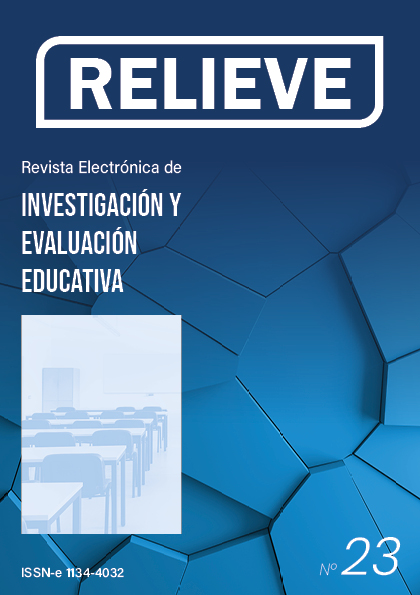What do secondary school pupils know about the European Union? Implications for learning
DOI:
https://doi.org/10.7203/relieve.23.2.9572Keywords:
Citizenship education, Secondary education, Educational testing, Student evaluation, European dimension in educationAbstract
The development of a European Dimension in Education is an objective linked to the construction of European identity and the exercise of active, responsible and critical citizenship. The paper analyzes the knowledge of Spanish Compulsory Secondary School pupils on topics regarding the European Union. The research involved 705 pupils from five secondary education centres in four Spanish regions. Twenty four item test was designed to examine the pupils' knowledge about: a) the European institutions, b) history of European cooperation, c) European citizenship, d) Europe in daily life, e) social and cultural identity and f) human rights and responsibilities. The results show that: a) 80.3% of the pupils only answered 14 items or less correctly; b) there were significant differences among pupils according to the year of study and the region, but a small size effect; c) pupils lack knowledge regarding “Europe in everyday life”, “European Citizenship”, “History of European cooperation” and “The European institutions”. There is a discussion of the need to define a cross-curricular approach.Downloads
Downloads
Published
How to Cite
Issue
Section
License
The authors grant non-exclusive rights of exploitation of works published to RELIEVE and consent to be distributed under the Creative Commons Attribution-Noncommercial Use 4.0 International License (CC-BY-NC 4.0), which allows third parties to use the published material whenever the authorship of the work and the source of publication is mentioned, and it is used for non-commercial purposes.
The authors can reach other additional and independent contractual agreements, for the non-exclusive distribution of the version of the work published in this journal (for example, by including it in an institutional repository or publishing it in a book), as long as it is clearly stated that the Original source of publication is this magazine.
Authors are encouraged to disseminate their work after it has been published, through the internet (for example, in institutional archives online or on its website) which can generate interesting exchanges and increase work appointments.
The fact of sending your paper to RELIEVE implies that you accept these conditions.














